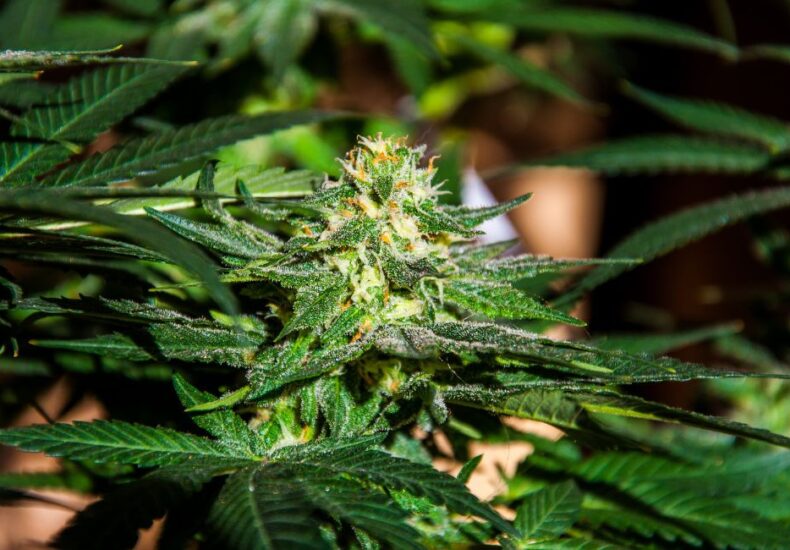
Diverse Cannabis Effects on the Body
Cannabis, a plant with a long history of medicinal and recreational use, has a complex relationship with the human body. Its effects can vary widely depending on numerous factors, including the strain, method of consumption, and individual physiology. This article explores the diverse cannabis effects on the body, supported by research, examples, and statistics.
Understanding Cannabis Compounds
Cannabis contains over 100 different cannabinoids, with tetrahydrocannabinol (THC) and cannabidiol (CBD) being the most well-known. These compounds interact with the body’s endocannabinoid system, which plays a role in regulating mood, appetite, pain, and more.
- THC: Known for its psychoactive properties, THC is responsible for the “high” associated with cannabis use. It binds to CB1 receptors in the brain, affecting perception, mood, and cognition.
- CBD: Unlike THC, CBD does not produce a high. It is often used for its potential therapeutic benefits, such as reducing anxiety and inflammation.
Physical Effects of Cannabis
Pain Relief
Cannabis has been used for centuries as a natural pain reliever. Studies suggest that it can be effective in managing chronic pain, particularly for conditions like arthritis and multiple sclerosis. A 2015 review found that patients using cannabis for chronic pain reported a 30% reduction in pain levels.
Appetite Stimulation
Often referred to as “the munchies,” cannabis can increase appetite. This effect is beneficial for individuals undergoing treatments like chemotherapy, which can suppress appetite. THC is primarily responsible for this effect, as it interacts with the brain’s reward system.
Cardiovascular Impact
Cannabis can have mixed effects on the cardiovascular system. Some users experience an increased heart rate and blood pressure shortly after consumption. Long-term effects are still being studied, but some research suggests a potential link between heavy cannabis use and cardiovascular issues.
Psychological Effects of Cannabis
Anxiety and Depression
Cannabis can have both positive and negative effects on mental health. While some users report relief from anxiety and depression, others may experience heightened symptoms. A 2017 study found that low doses of THC can reduce anxiety, but higher doses may increase it.
Cognitive Function
Short-term cannabis use can impair memory, attention, and learning. These effects are more pronounced with higher THC concentrations. Long-term use, particularly when started in adolescence, may lead to more persistent cognitive deficits.
Cannabis and Sleep
Cannabis is often used as a sleep aid, with many users reporting improved sleep quality. THC is known to reduce the time it takes to fall asleep, while CBD may help with REM sleep disorders. However, heavy use can disrupt sleep patterns and reduce overall sleep quality.
Case Studies and Statistics
Medical Use
A 2019 survey of medical cannabis users found that 62% reported using it for chronic pain, while 50% used it for anxiety. The majority of respondents reported significant improvements in their symptoms.
Recreational Use
In states where cannabis is legal, recreational use has increased. A 2020 study found that 18% of adults in the U.S. reported using cannabis in the past year. The study also noted a rise in cannabis use among older adults, who often use it for pain management and sleep.
Potential Risks and Considerations
- Addiction: While cannabis is less addictive than substances like alcohol or nicotine, it can lead to dependence in some users. Approximately 9% of users develop a cannabis use disorder.
- Mental Health: Heavy use, particularly in individuals with a predisposition to mental health disorders, can exacerbate conditions like schizophrenia.
- Legal and Social Implications: The legal status of cannabis varies widely, affecting access and social perceptions. Users should be aware of local laws and potential social stigma.
Conclusion
Cannabis has a wide range of effects on the body, influenced by various factors. While it offers potential benefits for pain relief, appetite stimulation, and sleep, it also carries risks, particularly for mental health and cognitive function. As research continues to evolve, understanding these diverse effects can help individuals make informed decisions about cannabis use.
Recent Posts
- Is a Gold IRA Worth It? Exploring Its Benefits And Drawbacks
- Discovering the Entourage Effect: Just How THCA Works with Various Other Cannabinoids
- Leading 10 Finest Gold IRA Companies for Secure Retirement Investments
- Delta nine Gummies: Proper Dosing Guide, Impacts, and More
- The Ecological Effect of Mushroom Farming for Coffee Manufacturing